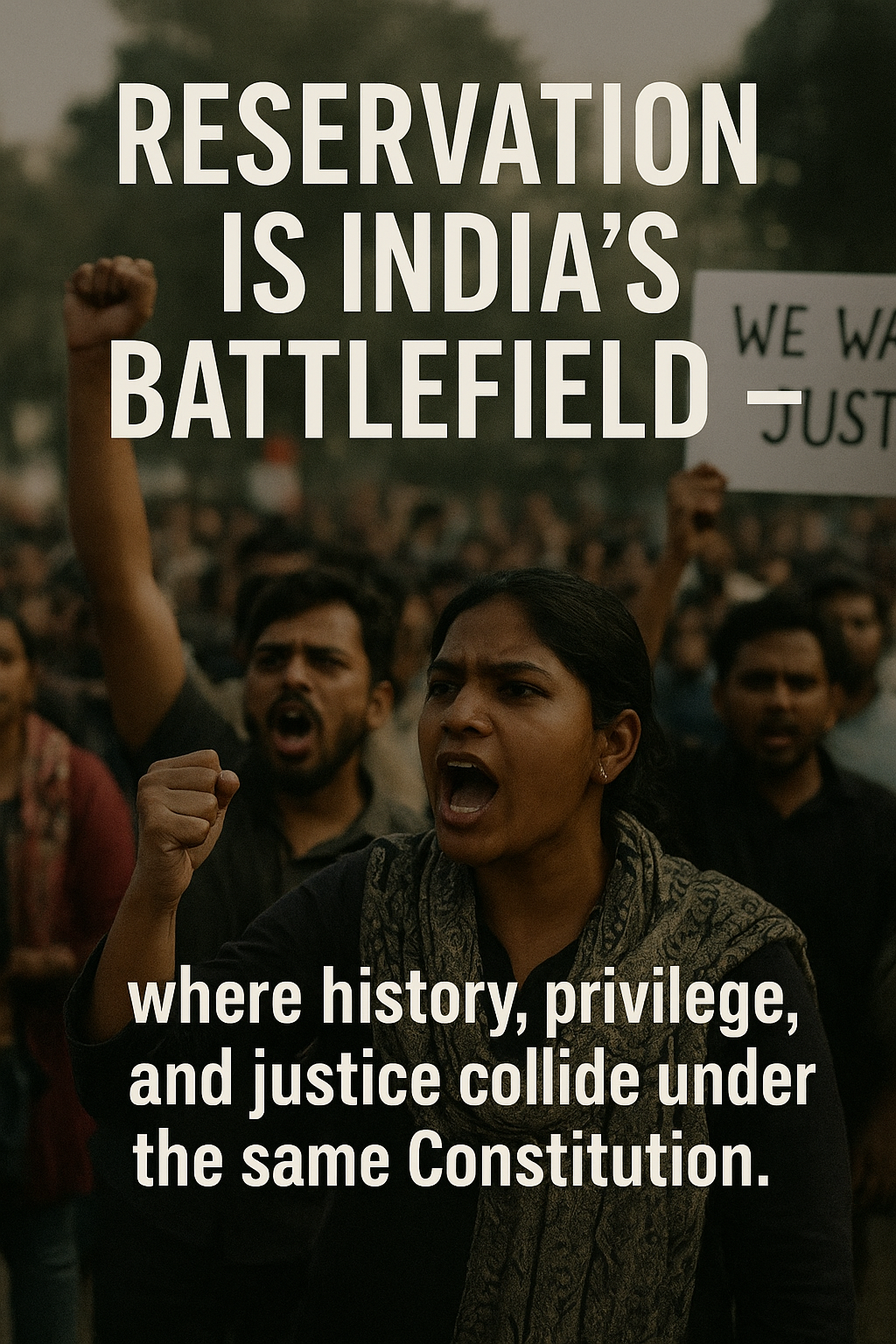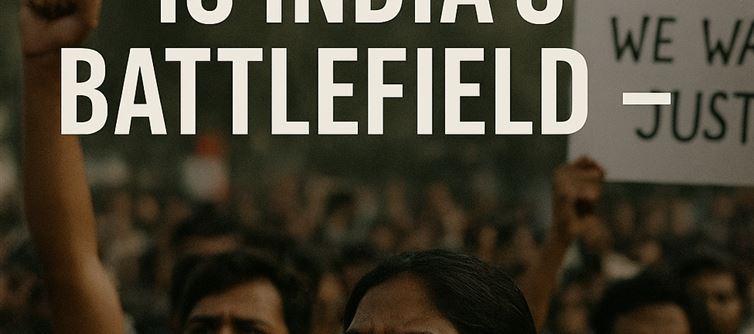Reservation is India’s battlefield where history, privilege, and justice collide under the same Constitution. It is not just about seats in colleges or jobs in government; it is about healing wounds that run centuries deep. For millions from marginalized communities, the reservation is the ladder that lifts them from invisibility to dignity. For others, it is seen as an unfair burden, a distortion of merit, and a constant reminder that opportunity is not equally earned. This battlefield is layered. On one side stand centuries of caste oppression, systematic exclusion, and social humiliation. On the other side, the aspirations of a growing middle class that sees itself shackled by quotas and denied by “reverse discrimination.” In between lies the State — walking a tightrope between justice and efficiency, between repairing the past and preparing for the future.

The irony is that both sides appeal to the same Constitution — one invokes its promise of equality, the other its assurance of justice. Thus, reservation becomes less of a policy and more of a mirror: reflecting India’s deepest contradictions. Until privilege and pain can be reconciled, this battlefield will remain open, echoing with cries of both empowerment and resentment.























